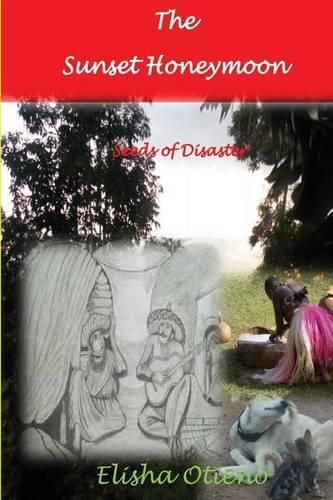Readings Newsletter
Become a Readings Member to make your shopping experience even easier.
Sign in or sign up for free!
You’re not far away from qualifying for FREE standard shipping within Australia
You’ve qualified for FREE standard shipping within Australia
The cart is loading…






The sunset Honeymoon is a fiction focusing on the negative cultural practices that fuel the spread of HIV/Aids. It’s not anti-cultural but aims at weeding out the practices that promotes irresponsible sexual behaviour. The story unfolds in Akondo’s homestead, inside a traditional hut used by village girls as their sleeping place. The girls’ boyfriends come to this haven to pick them up for romantic adventures. Adoyo, however, is different from her peers. She is nauseated by their conduct and never misses an opportunity to speak out her disapproval. Akondo appears on the scene. Although 70, Akondo practically outdoes the village youngsters in romantic adventure. He showers his lover Akuom with such attention as only he can give to this widow. Armstrong comes to the village. He facilitates forums for discussion on HIV/AIDS. The village is in great need of such an intervention, given the rather uncontrolled love affairs, including relationships with women whose hubbies have died. Armstrong finds a strong foot soldier in Adoyo, who speaks out against even her own father for choosing to be a widow inheritor. But it is not easy for Armstrong and Adoyo. The sex life of these villagers is so entrenched, as it is, that trying to change it is almost like trying to get people to change their culture. Ogoma comes onto the scene. Where Akondo excels at making Akuom feel young again, through public display of love, Ogoma has the dubious distinction of being the man who has served the greatest number of widows satisfactorily. Ogoma later ails. He is reduced to a feeble patient in the home of Akuota, one of the widows he has inherited. Various interventions are sought to remedy Ogoma’s strange illness. Like many others in this village, Ogoma succumbs to the strange illness, eventually. This is the price they have to pay for life choices that disregard the prevalence of a disease that has no known cure.
$9.00 standard shipping within Australia
FREE standard shipping within Australia for orders over $100.00
Express & International shipping calculated at checkout
The sunset Honeymoon is a fiction focusing on the negative cultural practices that fuel the spread of HIV/Aids. It’s not anti-cultural but aims at weeding out the practices that promotes irresponsible sexual behaviour. The story unfolds in Akondo’s homestead, inside a traditional hut used by village girls as their sleeping place. The girls’ boyfriends come to this haven to pick them up for romantic adventures. Adoyo, however, is different from her peers. She is nauseated by their conduct and never misses an opportunity to speak out her disapproval. Akondo appears on the scene. Although 70, Akondo practically outdoes the village youngsters in romantic adventure. He showers his lover Akuom with such attention as only he can give to this widow. Armstrong comes to the village. He facilitates forums for discussion on HIV/AIDS. The village is in great need of such an intervention, given the rather uncontrolled love affairs, including relationships with women whose hubbies have died. Armstrong finds a strong foot soldier in Adoyo, who speaks out against even her own father for choosing to be a widow inheritor. But it is not easy for Armstrong and Adoyo. The sex life of these villagers is so entrenched, as it is, that trying to change it is almost like trying to get people to change their culture. Ogoma comes onto the scene. Where Akondo excels at making Akuom feel young again, through public display of love, Ogoma has the dubious distinction of being the man who has served the greatest number of widows satisfactorily. Ogoma later ails. He is reduced to a feeble patient in the home of Akuota, one of the widows he has inherited. Various interventions are sought to remedy Ogoma’s strange illness. Like many others in this village, Ogoma succumbs to the strange illness, eventually. This is the price they have to pay for life choices that disregard the prevalence of a disease that has no known cure.